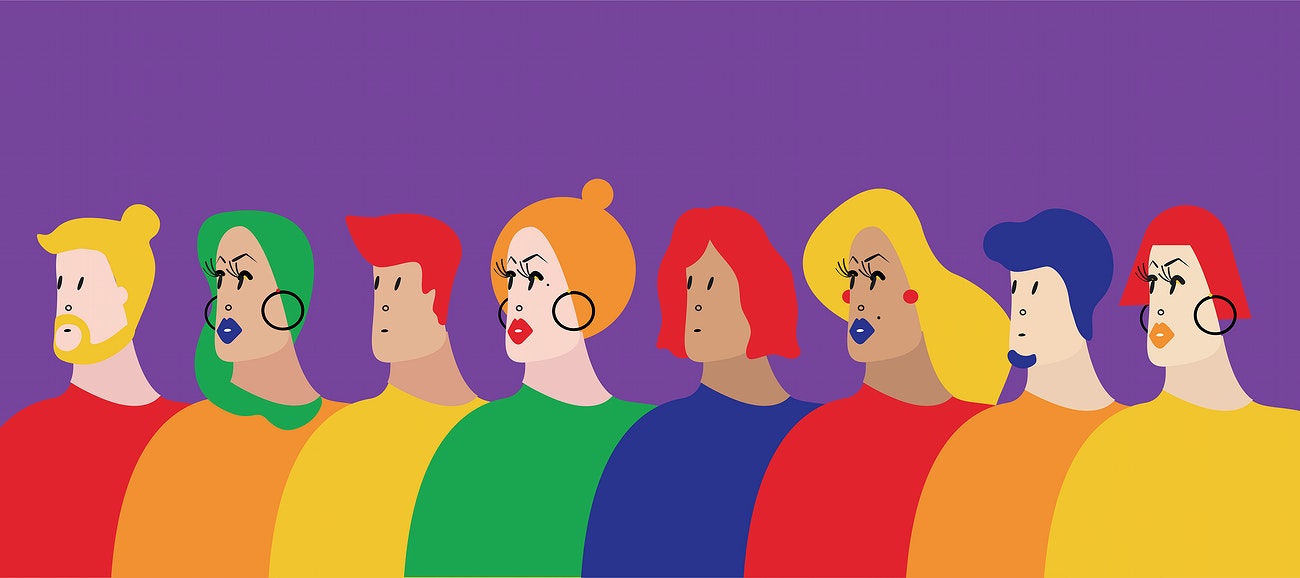Bi+ in the Netherlands: Hidden and stereotyped

Commissioned by Bi+ Nederland, the University of Groningen and Rutgers conducted research among almost 3,000 bi+ people aged 16 to 55 years old. This is the first time that research was conducted among this population on such a large scale. The results show that this mostly hidden group experiences a lot of prejudice.
Hidden
The term bi+ refers to people who are attracted to more than onegender, or regardless of gender, who have intimate relationships with more than one gender, or people who identify as bisexual, pansexual, heteroflex, bi+ or queer. “We know very little about bi+ and this is surprising given that it seems to reflect a large group,” says Laura Baams, researcher at the University of Groningen. Because most people still think in terms of gay or straight, bi+ often remains invisible. Despite this, bi+ people experience prejudice, exclusion, and rejection. “For the first time, our research is able to show what these experiences with the monosexual norm look like. The findings suggest that the excessive use of labels can feel limiting to bi+ people.”
Discrimination
The research shows that half of bi+ participants are regularly joked about. Approximately 17% are called names related to their sexual orientation on a regular basis. “This means that it may be more difficult for bi+ people to be open about their sexual orientation,” says Hanneke de Graaf, researcher at Rutgers. The research shows that most bi+ people disclose their sexual orientation with friends, but much less with their family or colleagues. For bi+ men it seems more difficult to share their sexual orientation.
Prejudice
Almost half of bi+ participants are confronted with the prejudice that their sexual orientation would be temporary. And about a third of participants experienced that people assumed they would be unfaithful. While the majority of bi+ people with a relationship (64%) are in a monogamous relationship. “These are painful experiences, and it is not surprising that people’s self-esteem and wellbeing suffers as a result,” says Baams. “We see this reflected in our findings.” The more bi+ people are confronted with stigma and prejudice, the more they experience depressive and anxiety symptoms. Stigma also increases the odds of someone being a heavy drinker in the past six months or using drugs in the past year.
More attention
Despite the growing attention for the position, wellbeing, and rights of LGBTI+ people in the Netherlands, the bi+ group remains invisible. Baams: “In our society, bi+ people remain hidden. And this research shows that they are poorly understood and underrepresented, regularly confronted with prejudice, and that this negatively affects their wellbeing. By taking the experiences of bi+ people more seriously, we can improve the understanding for this group of people. In addition, we could make laws and policies more inclusive by closely looking at the different needs within the LGBTI+ community when it comes to diversity in relationships and family formation, and the response to discrimination.”
Contact
Laura Baams (UG researcher) or Gerrit Jan Wielinga (contact person Bi+ Nederland)
More news
-
15 September 2025
Successful visit to the UG by Rector of Institut Teknologi Bandung
